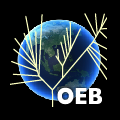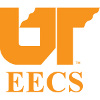Righteousness

A follow-up to the Corruption paper. In the original corruption game, an initially cooperating population could only end up with a corrupt police force, or without police with selfish individuals running rampant. In our work, we showed how there is a third possibility: a righteous society, that is, a society where individuals are mostly cooperative and punish wrong-doers, regardless of whether they are themselves punishers.
The righteous society turns out to be exceptionally stable, as long as punishment against wrong-doers remains strong enough. Moreover, the best chance to unstuck a society that dominated by corruption is to:
- reward punishing behavior; and
- decrease power asymmetries between punishers and non-punishers.
While these two conditions seem intuitive and reasonable, there is some subtlety to this conclusion. The reward given to punishers can be tiny, like a simple increased social status, or a small monetary reward. It doesn't even have to compensate directly for the punisher's cost of punishing (say, the risk a police officer takes by its job). It just needs to be slightly appealing to be a punisher over a non-punisher. The condition to decrease power asymmetries offers a nice moral: to combat corruption, it is important not to fall into the temptation to overshoot and end up punishing corrupt punishers much more than normal people. Having the punishment apply the same to everyone, regardless of their status is what maximizes the chance of getting out of corruption. In other words, the path to righteousness starts with fairness, not with vengeance.
The work was published in the PLoS ONE journal. You can grab here the PDF. It has also been discussed in a number of blogs and news sites:
- Phys.Org
- Science Codex
- James Goodwin's Blog
- Carta Capital (in Portuguese)
In technical terms, this paper aims to solve a structural instability present in the original corruption game, where honest police and cooperators had the exact same pay-off when interacting only among themselves. This structural instability effectively supressed one of the global equilibria, leaving only corruption and defection as possible outcomes of the dynamics. Our modification recovers that third equilibrium and, in fact, shows how it is significantly more stable and with better wellbeing than corruption.
About Me
![]() Edgar A. Duéñez Guzmán is a Senior Research Engineer at DeepMind.
Previously he was at Google, where he developed the first
machine learning system to select the index for Image Search.
During his academic career, he was a Postdoctoral fellow at the
Department of Biology at
KU Leuven working with
Tom Wenseleers in social evolution in microbes;
Edgar A. Duéñez Guzmán is a Senior Research Engineer at DeepMind.
Previously he was at Google, where he developed the first
machine learning system to select the index for Image Search.
During his academic career, he was a Postdoctoral fellow at the
Department of Biology at
KU Leuven working with
Tom Wenseleers in social evolution in microbes;
and a Research Associate at the
Department of Organismic and Evolutionary Biology at
Harvard University working with
David Haig in social evolution and imprinting.
Learn more...
Contact Info
E-mail: eaduenez {at} gmail {dot} com
 KU Leuven
KU Leuven OEB - Harvard
OEB - Harvard EECS - UTK
EECS - UTK FIT - Monash
FIT - Monash NIH
NIH HHMI
HHMI CIMAT
CIMAT


